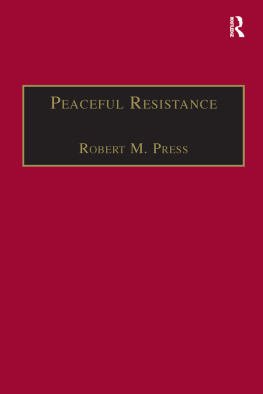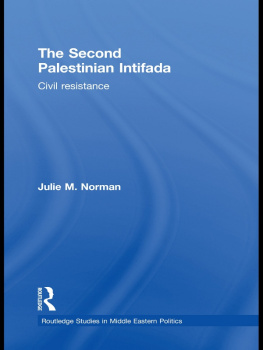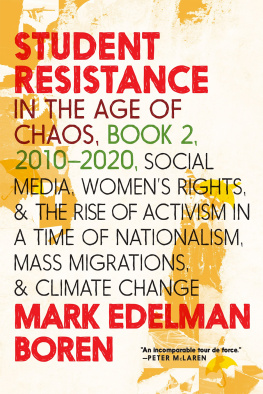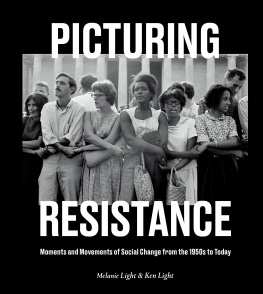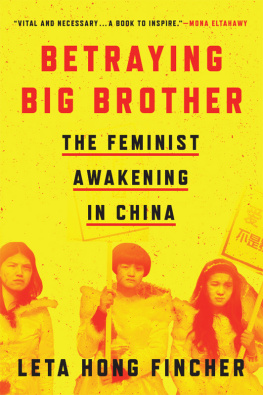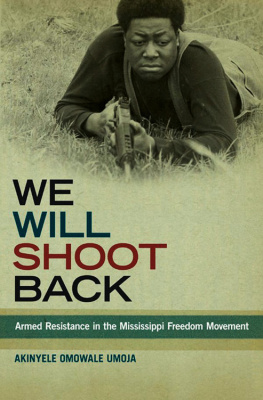PEACEFUL RESISTANCE
Ethics and Global Politics
Series Editors: Tom Lansford and Patrick Hayden
Since the end of the Cold War, explorations of ethical considerations within global politics and on the development of foreign policy have assumed a growing importance in the fields of politics and international studies. New theories, policies, institutions, and actors are called for to address difficult normative questions arising from the conduct of international affairs in a rapidly changing world. This series provides an exciting new forum for creative research that engages both the theory and practice of contemporary world politics, in light of the challenges and dilemmas of the evolving international order.
Also in the series
The Ethics of Refugee Policy
Christina Boswell
ISBN 0 7546 4519 3
Justice and Violence
Edited by Allan Eickelmann, Eric Nelson and Tom Lansford
ISBN 0 7546 4546 0
Global Ethics and Civil Society
Edited by John Eade and Darren OByrne
ISBN 0 7546 4214 3
In War We Trust
The Bush Doctrine and the Pursuit of Just War
Chris J. Dolan
ISBN 0 7546 4234 8
Cosmopolitan Global Politics
Patrick Hayden
ISBN 0 7546 4276 3
Understanding Human Rights Violations
New Systematic Studies
Edited by Sabine C. Carey and Steven C. Poe
ISBN 0 7546 4026 4
Peaceful Resistance
Advancing Human Rights and Democratic Freedoms
ROBERT M. PRESS
University of Southern Mississippi
First published 2006 by Ashgate Publishing
Published 2016 by Routledge
2 Park Square, Milton Park, Abingdon, Oxon OX14 4RN
711 Third Avenue, New York, NY 10017, USA
Routledge is an imprint of the Taylor & Francis Group, an informa business
Copyright 2006 Robert M. Press
Robert M. Press has asserted his moral right under the Copyright, Designs and Patents Act, 1988, to be identified as the author of this work.
All rights reserved. No part of this book may be reprinted or reproduced or utilised in any form or by any electronic, mechanical, or other means, now known or hereafter invented, including photocopying and recording, or in any information storage or retrieval system, without permission in writing from the publishers.
Notice:
Product or corporate names may be trademarks or registered trademarks, and are used only for identification and explanation without intent to infringe.
British Library Cataloguing in Publication Data
Press, Robert M.
Peaceful resistance: advancing human rights and democratic freedoms. (Ethics and global politics)
1.Passive resistance Kenya 2.Human rights workers Kenya 3.Political activists Kenya 4.Democracy Kenya 5.Human rights Kenya 6.Kenya Politics and government 18782002
I.Title
323.044096762
Library of Congress Cataloging-in-Publication Data
Press, Robert M.
Peaceful resistance: advancing human rights and democratic freedoms / by Robert M. Press.
p. cm. -- (Ethics and global politics)
Includes bibliographical references and index.
1. Government, Resistance to--Case studies. 2. Government, Resistance to--Kenya. 3. Human rights--Kenya. 4. Democratization--Kenya. 5. Political activists--Kenya. 6. Human rights workers--Kenya. I. Title. II. Series.
JC328.3.P74 2006
322.44096762--dc22
2005037637
ISBN 9780754647133 (hbk)
Contents
Robert Press grew up in Missouri where he graduated from the University of Missouri with a degree in journalism. After working in Africa for the U.S. Agency for International Development, he and his wife, Betty Press, hitch-hiked and flew around the world for two years. He then worked as a staff writer for The Christian Science Monitor in various locations, including eight years based in Kenya (19871995), traveling across East and West Africa with his wife, a photographer.
He is the author of The New Africa: Dispatches from a Changing Continent, published in 1999 by the University Press of Florida, selected as one of the best 40 books published by any university press in the United States in 19992000. He was a Visiting Professor at Principia College in Elsah, Illinois and an Adjunct Professor at Stetson University in DeLand, Florida before moving to Mississippi. He is currently an Assistant Professor in the Department of Political Science, International Development and International Affairs at the University of Southern Mississippi. He may be contacted at bob.press@usm.edu or The University of Southern Mississippi, 118 College Drive#5108, Hatttiesburg, MS. 394065108.
The idea for this book stems from eight years living and working in Kenya as a correspondent for The Christian Science Monitor from 19871995. My wife and I traveled many times across East and West Africa and saw first hand examples of the most significant moves toward democracy that most African states had ever experienced. Except where there were civil wars or revolutions, most of the changes were peaceful, at least from the side of activists: regimes often used brutal force to try to stop or slow change.
In 1999, the University Press of Florida published my account of these turbulent years: The New Africa: Dispatches from a Changing Continent It focused on the democratization process, civil society, and the civil war in Somalia and genocide in Rwanda. My account of Kenya featured some of the activists in the current work.
I never examined the process by which democratization occurred in Kenya or the dynamics behind human rights and democracy activism. When I returned to Kenya in 1999 for initial research for this book, my plan was to focus on human rights organizations. I learned, however, that the human rights groups were only part of an array of organizations that had pushed for greater human rights and democracy. I also realized that not just organizations, but individual activists had played an important part in the early stages of the overt resistance. When I returned in 2002 for the major research for this book, I was able to locate most of the key activists and interview them and others about their efforts, cross-checking their claims with archival accounts. They helped start a process that led to establishment of what I call a culture of resistance. This consisted of widespread disagreement with a regime and open efforts to force it to make reforms. The resistance involved not only organizational activism but also individual activism, an important but over-looked phenomena in the study of human rights and democratization.
Much of the current literature on social movements and democratic transitions describes activism as highly dependent on external circumstances, so-called structural and institutional constraints. In Kenya I found that activists, including individuals activists, organizational representatives and visible segments of the general public forged ahead despite such constraints and despite the risks. Their efforts won key advances in human rights and democratic freedom through a process that was fairly loose, not easy to predict, and involving a high degree of human initiative.
I make no claims that activism results in an election as in Kenya, where the ruling party was defeated after a long reign. But without the activism, it is unlikely that changes would have come when they did. Once in power themselves, there is no guarantee that former activists will not resort to some of the same repressive tactics they once opposed. But a population awakened to their human rights and democratic freedom will be less tolerant of those who come later and try to reverse those gains.

